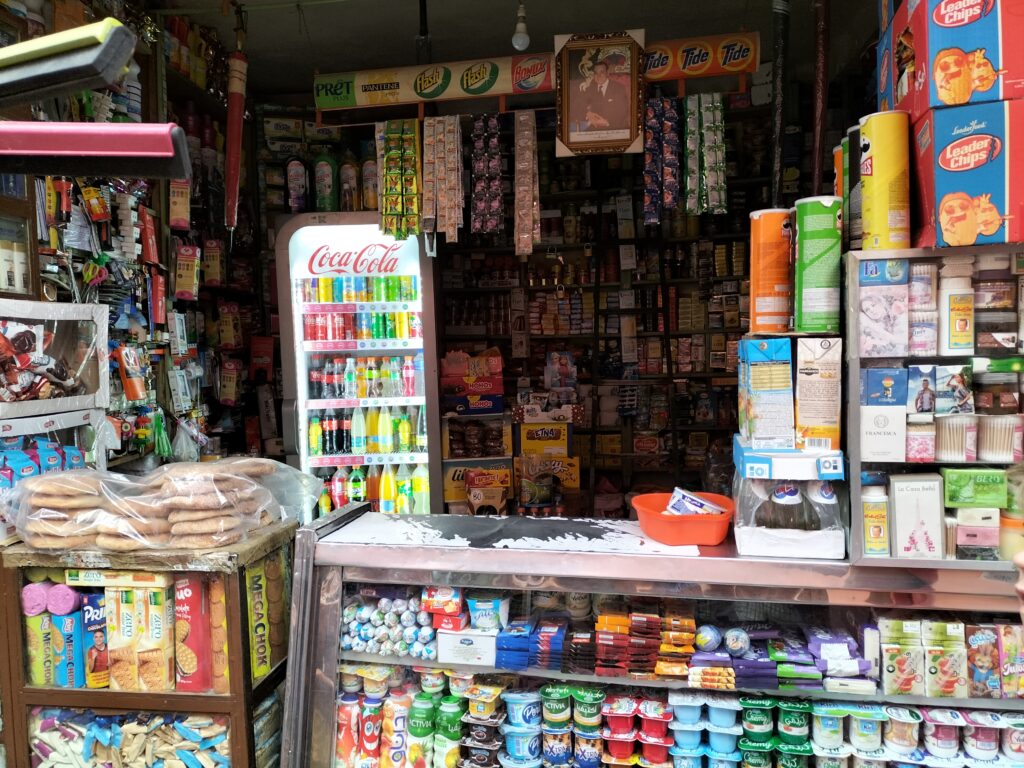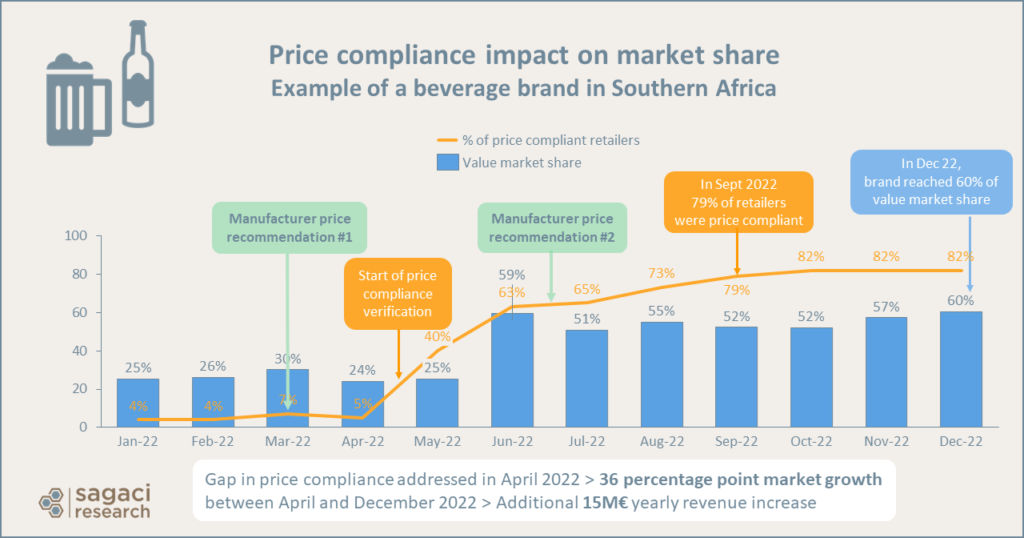- 04/04/2023
- Posted by: Janick Pettit
- Categories: Articles, Consumer Goods / FMCG, Retail, SagaTracker

While the share of Modern Trade is growing on the African continent, Traditional Retail in Africa still accounts for the majority of sales in most of the regions. And both will continue to coexist.
Beyond being an excellent solution for African consumers’ lifestyles and wallets, several examples of modernization of traditional retail in Africa will further support growth of the sector in the years to come. Here we think of digital solutions such as Chari in Morocco, Alerzo in Nigeria, Wasoko in Kenya, etc. These will help FMCG companies structure their go-to-market strategies by reducing distribution bottlenecks and providing data to better understand traditional retailers in Africa. However, one key element is not necessarily easily available, yet critical for manufacturers to support the growth of their market share: price compliance.
Making retailers respect recommended prices
Price compliance consists of making sure a recommended price for a specific product/set of products is applied by retailers. The more prices match the expected value of a product, the better the sales. Establishing a retail Price is a sensitive tool to meet several companies’ objectives: catering to its own brand equity, building and maintaining trust in the brand, monitoring reputation, growing shares and so on.
Conflict between recommended prices and retail prices in Traditional Retail in Africa
However, price compliance is about a complex alignment of incentives for brands and retailers. And it is especially difficult to reach in traditional trade.
Shop owners tend to set prices based on their own margin as well as their clients’ purchasing power. Retailers may want to take advantage of the brand equity of the brands and push prices high, above the recommended price incurring a higher margin. This is done at the expense of the brand, which still has a low price to the retailer and yet doesn’t achieve the targeted volumes.

Ensuring price conformity may bring more volumes and reinforce brand positioning
Depending on their strategy, brands may want to sell for lower prices to achieve higher volumes. Lower prices imply lower retail margins for stores (at the unit level), which should be offset by higher volumes.
Yet, consistent price compliance may not only bring more volumes. It also benefit brand positioning: consistent price positioning across competitors, consistent proposition to consumers.
Price is a tool for brands to monitor positioning and manoeuvre their reputation as they see fit. Dealing with a nebular of prices among different informal retail shops blurs the message a company wants to send out. More emphatically, on the consumer side, the idea is to set the ideal price – not always the highest possible – that enough people are willing to accept.
How can retail audits support price compliance? Example of a beverage brand in Southern Africa
Retail audits allow to regularly monitor some critical KPIs in the African traditional retail industry. It includes price compliance enabling brands to act on the results. Awareness of the gaps in price compliance and granularity on where those gaps are more important allow specific actions to enforce the right prices.
Let’s look at the situation of this beverage brand. It was navigating through an economic crisis, a nationwide purchasing power erosion and even natural catastrophes. And yet, we see below how it still managed to increase more than two folds its volume sales. How? Its price strategy is a good place to start.
Done in the right place and way, it puts a statement out that stands out directly onto the target customer.

Want to know more about Retail Audits?
SagaTracker is a syndicated retail audit that covers over 70 FMCG categories across 13 markets in Africa. SagaTracker provides an objective, quantifiable and cost effective view of the performance of different brands within a category in a given country.
If you would like to know more about retail audits in Africa or how to conduct price monitoring in traditional African retail, please send an email to contact@sagaciresearch.com or click below.






